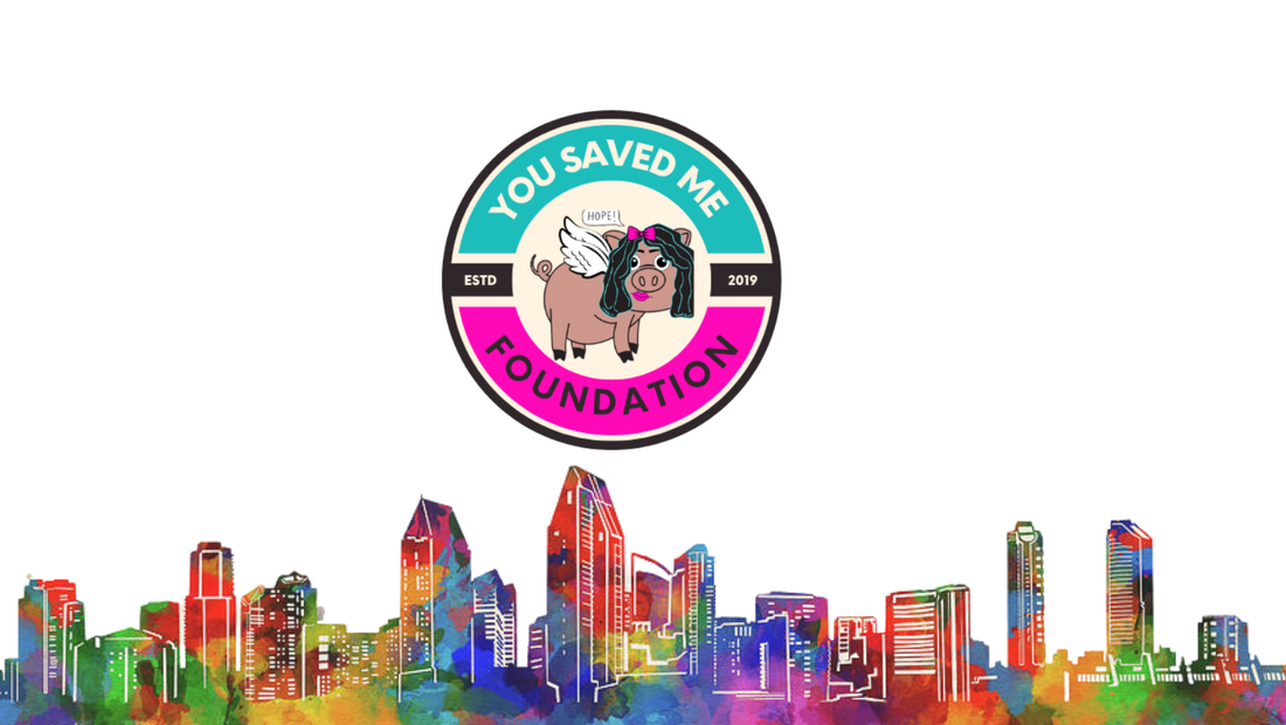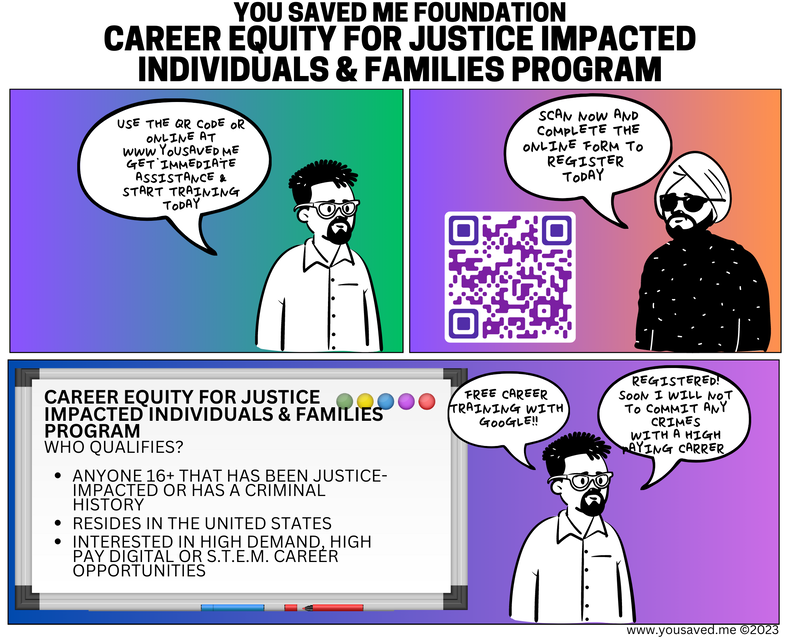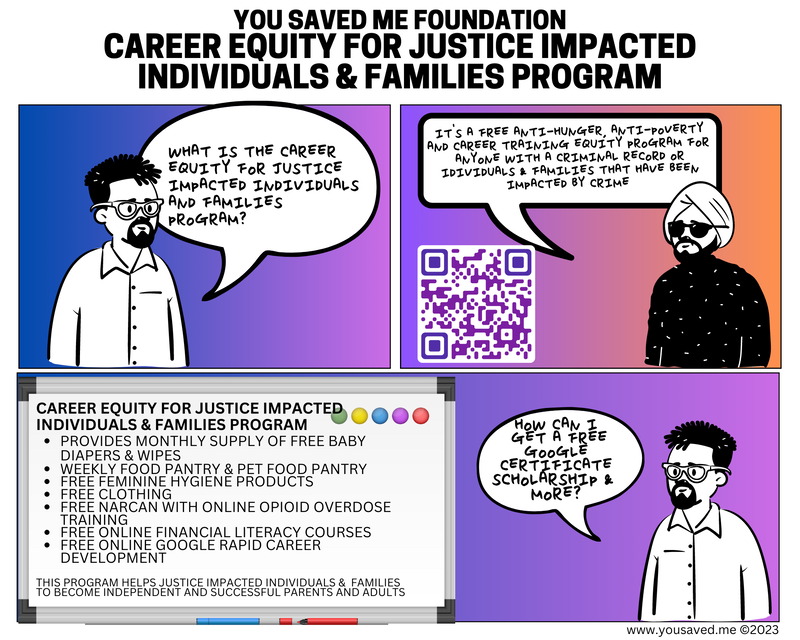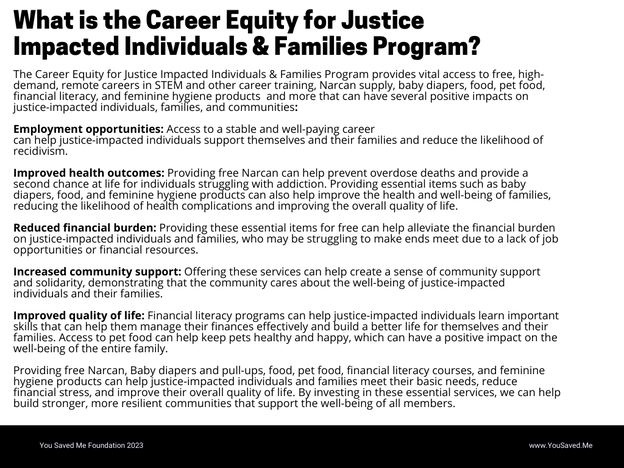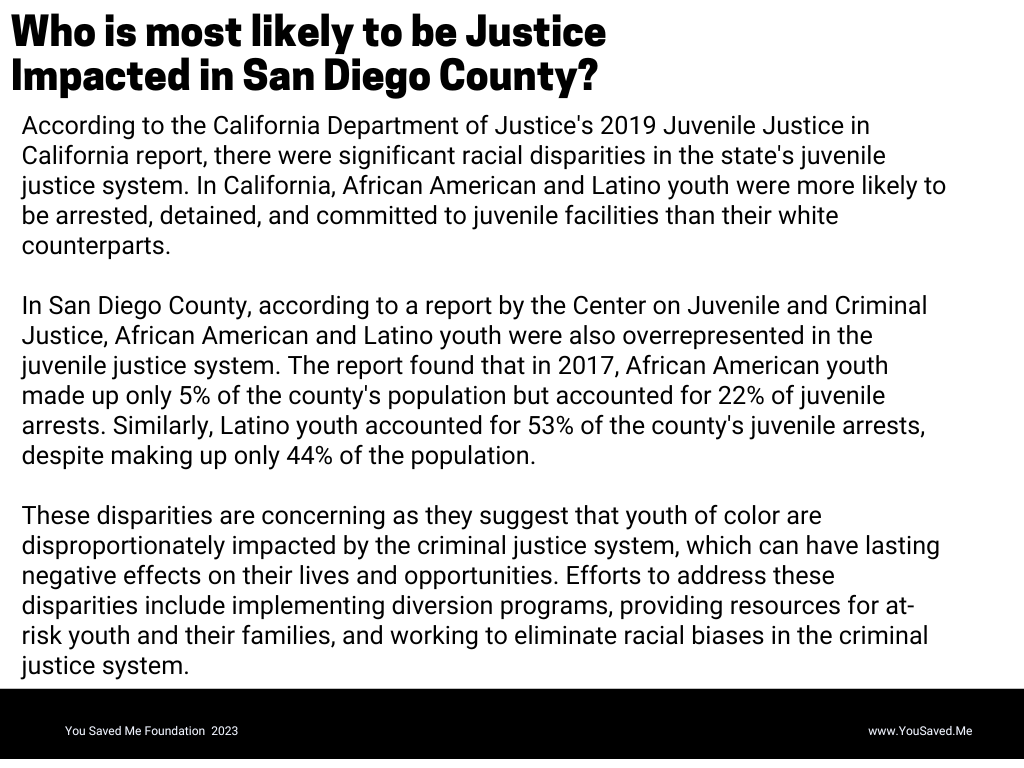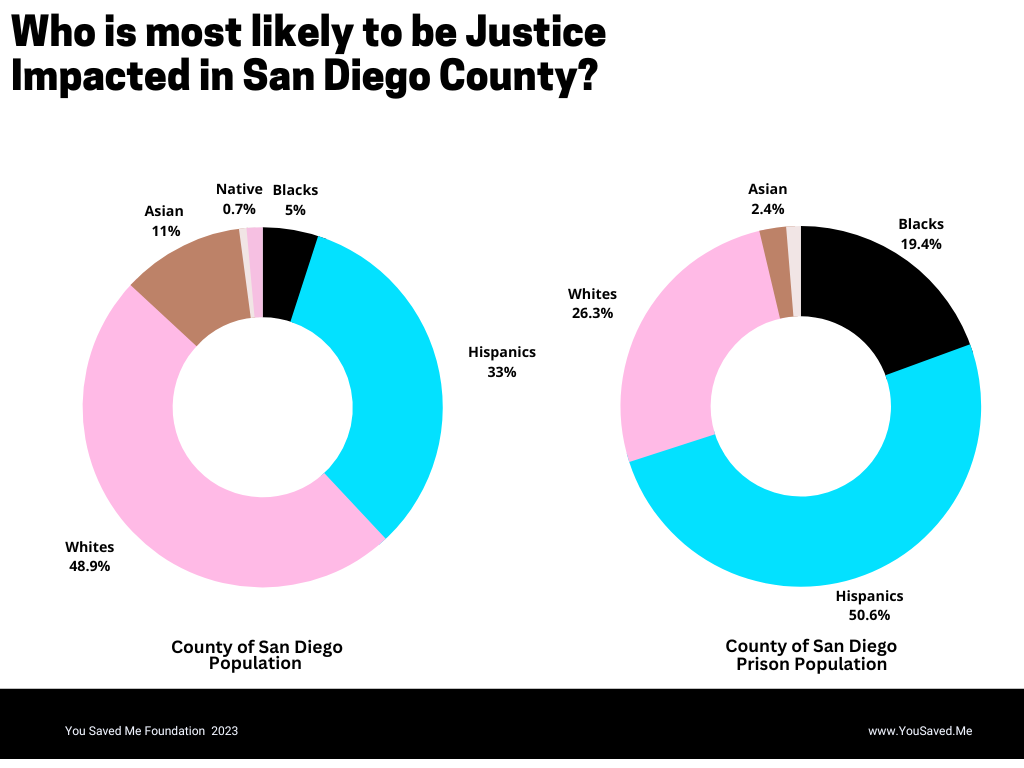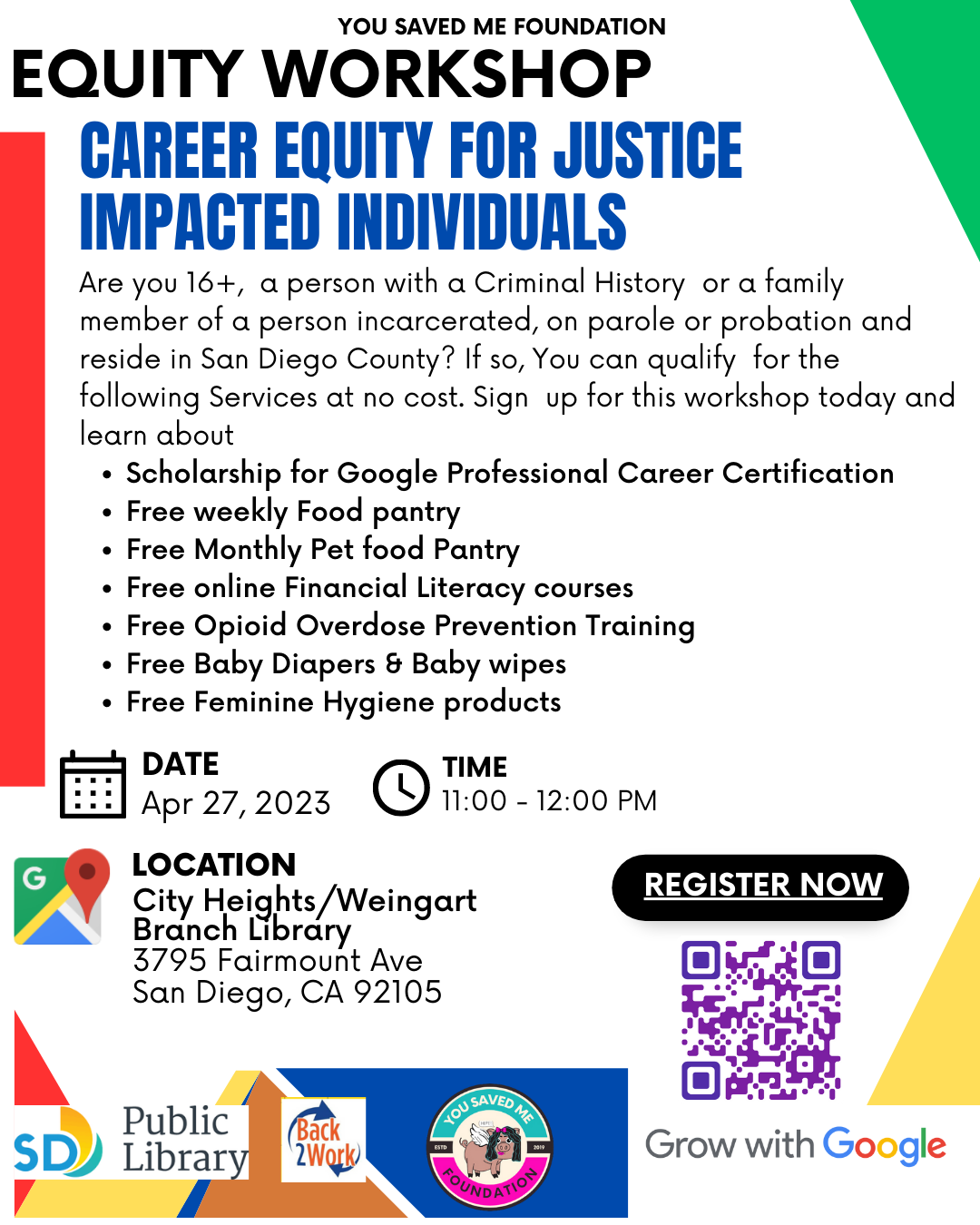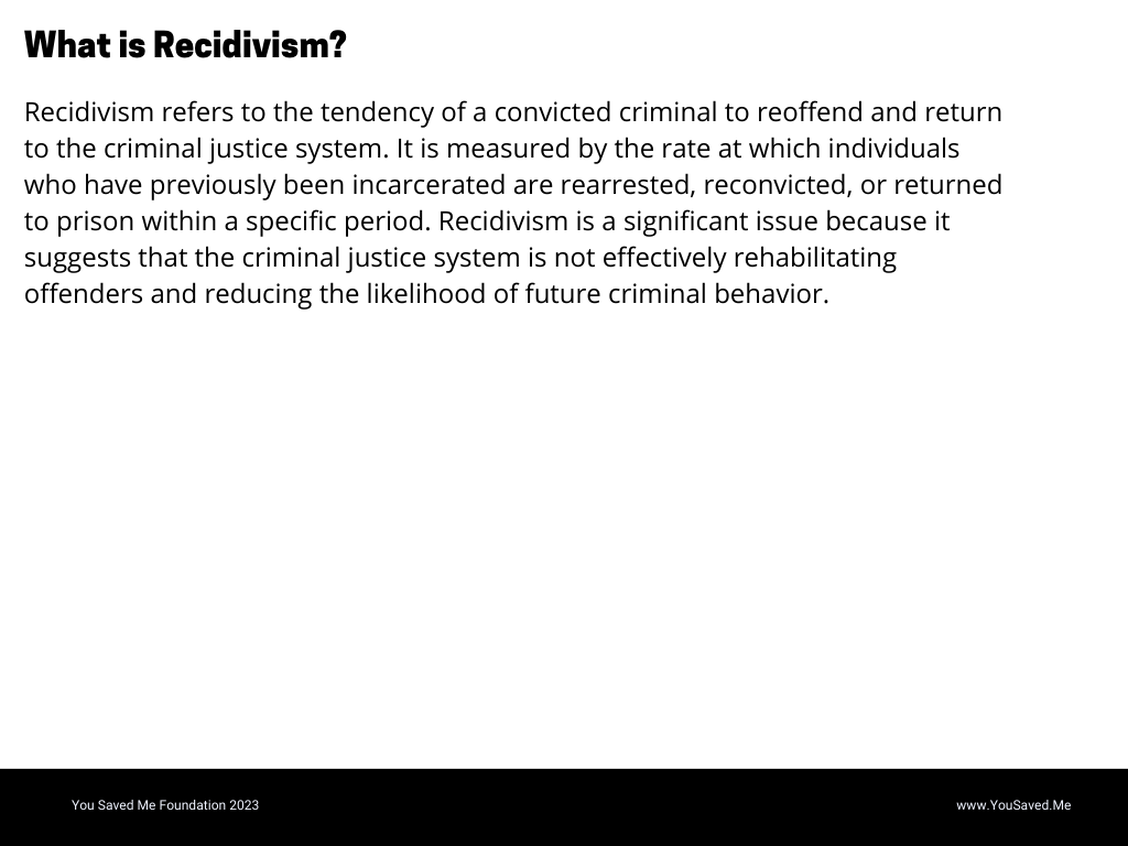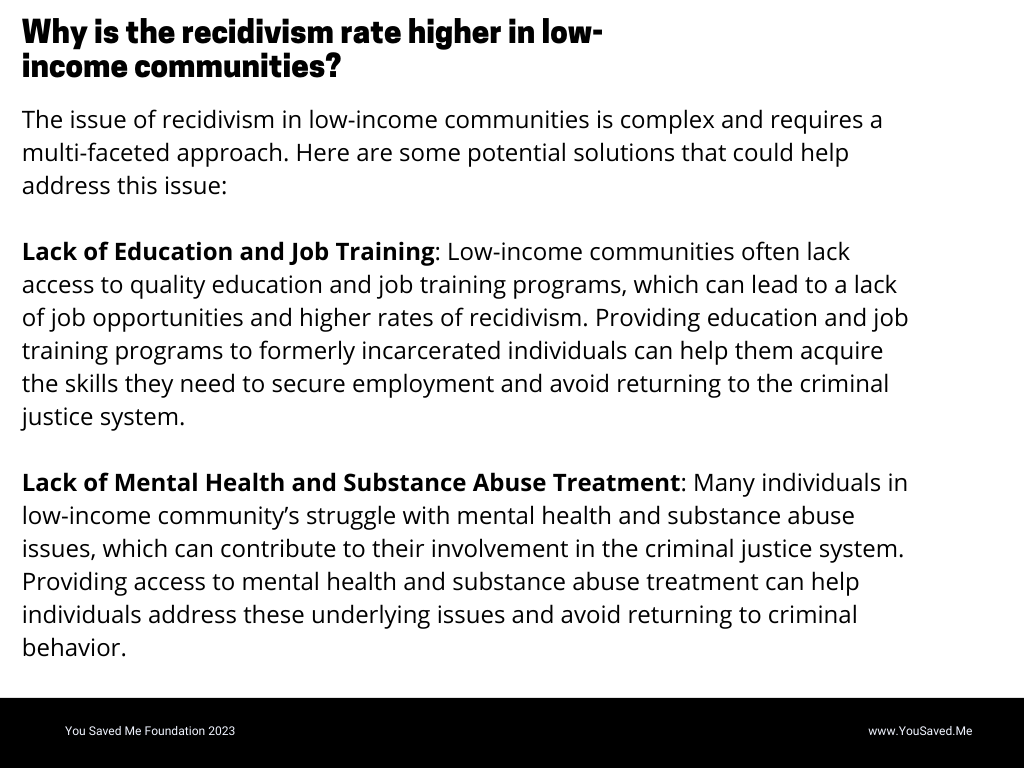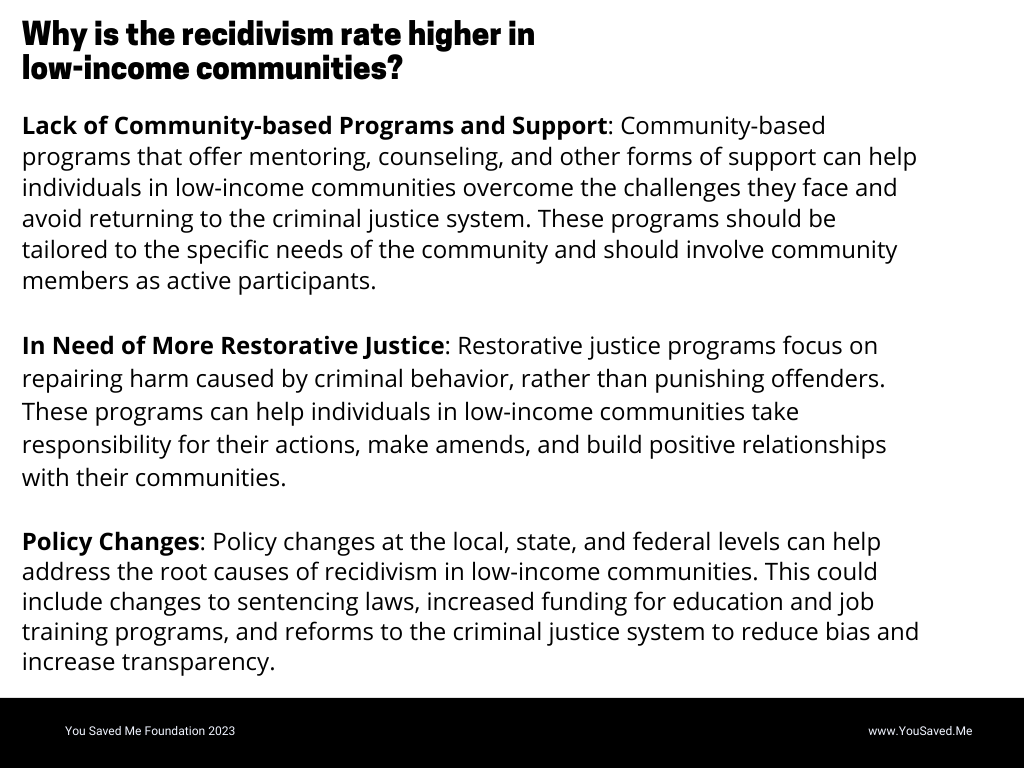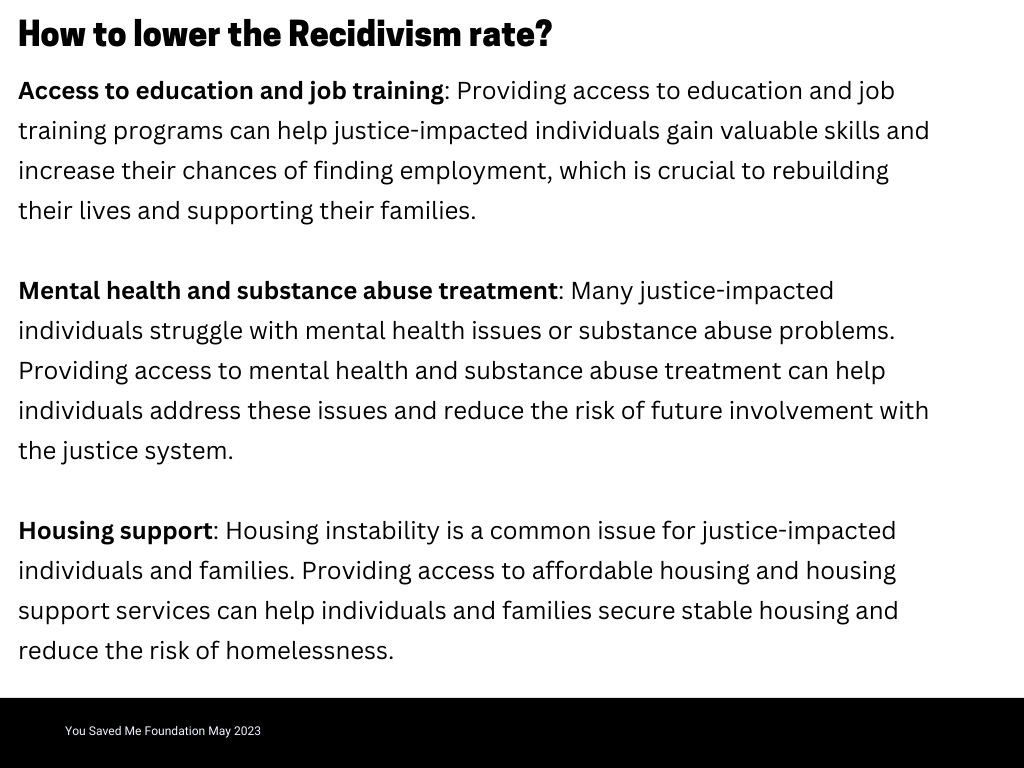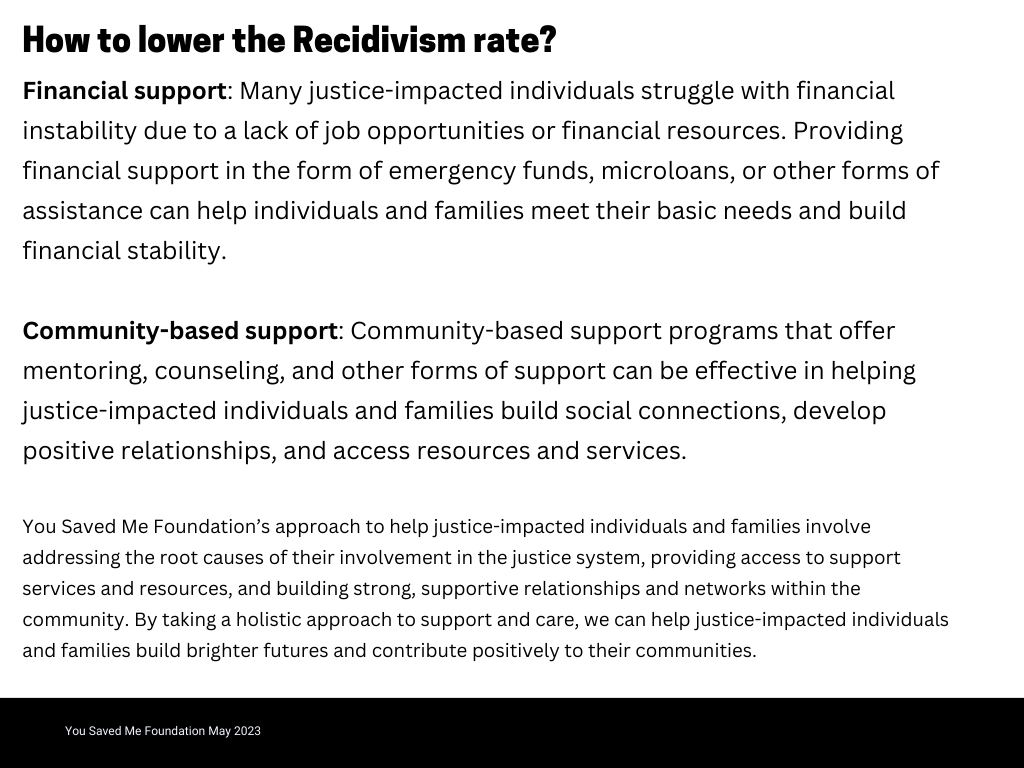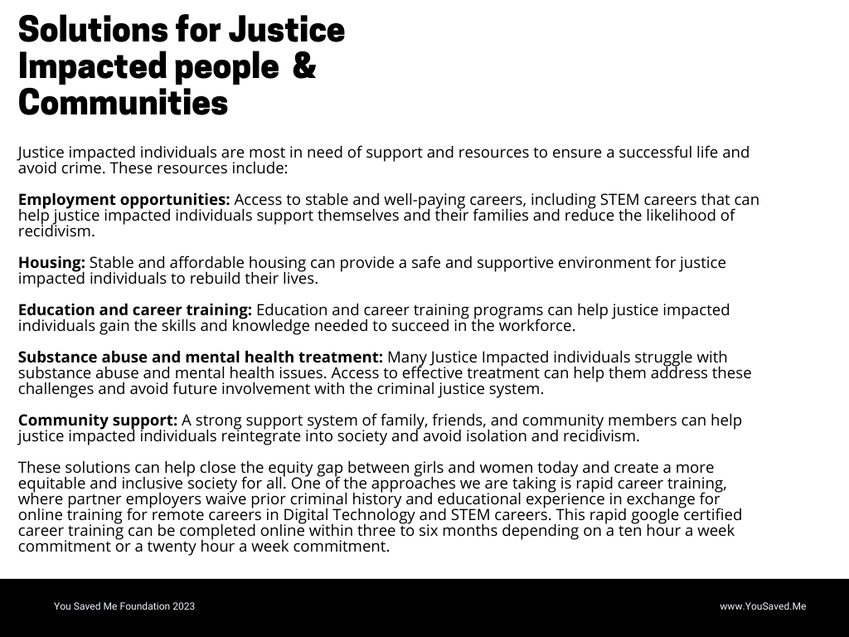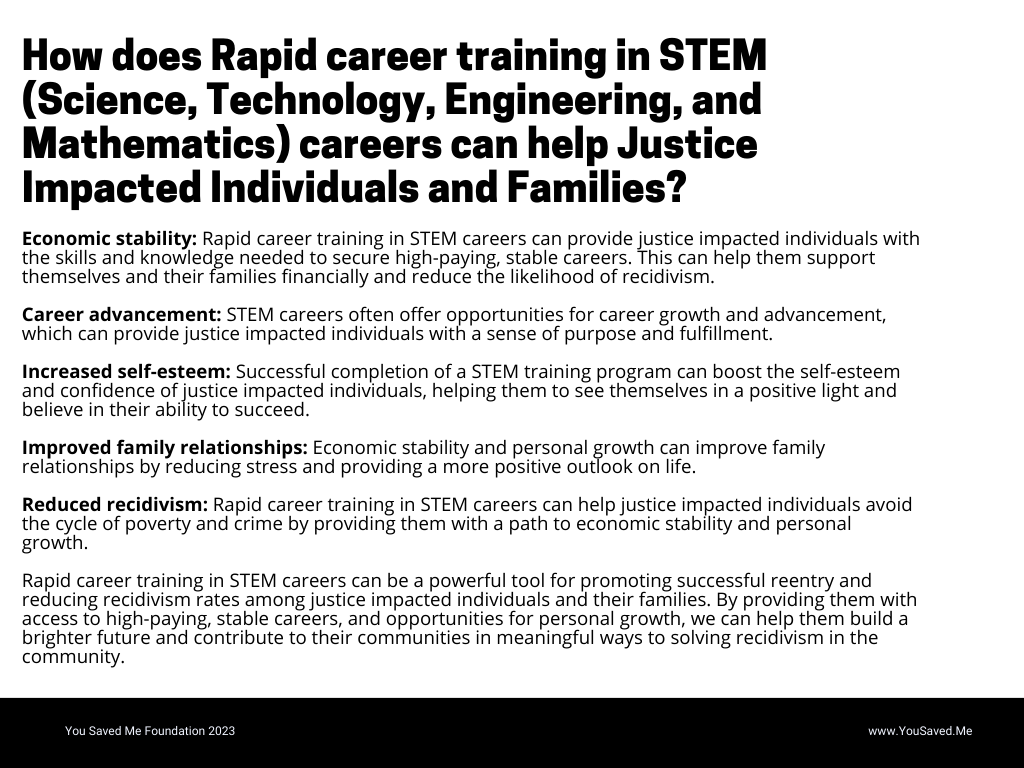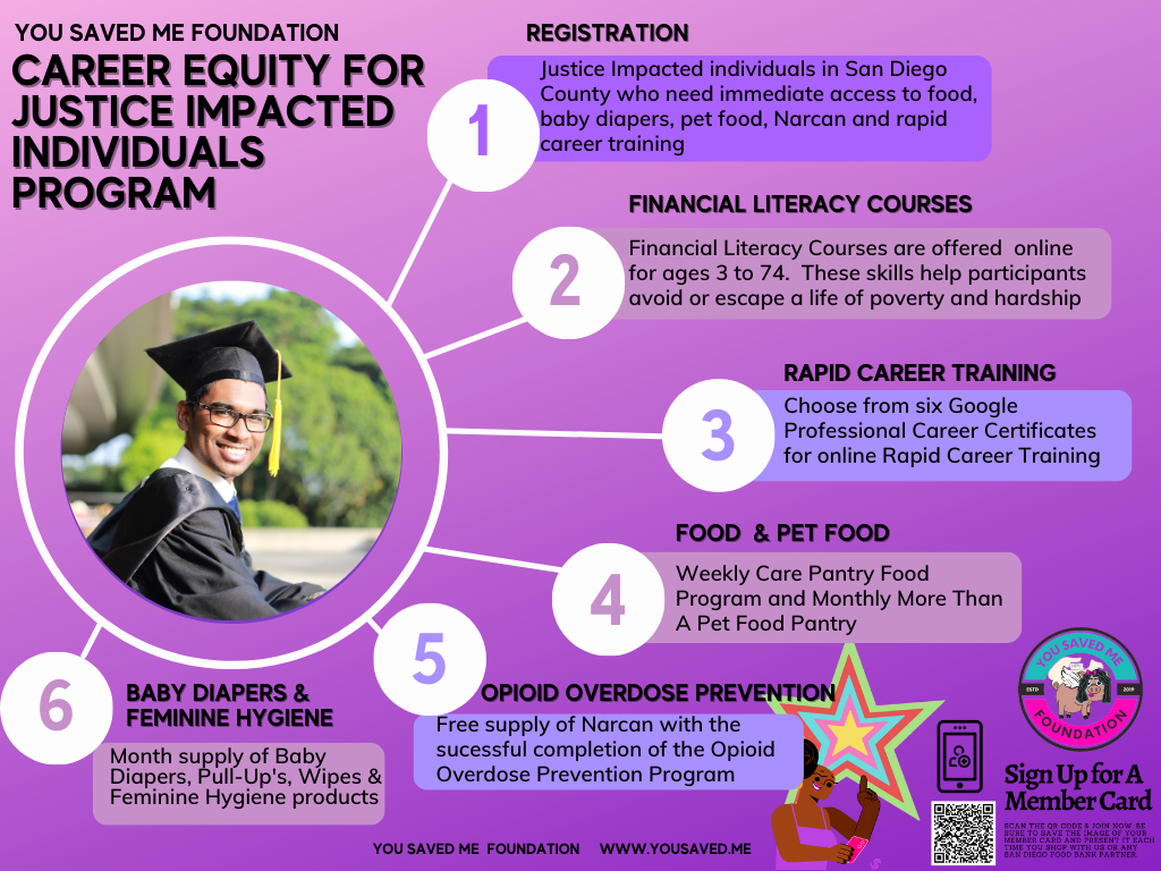|
You Saved Me Foundation’s Career Equity for Justice Impacted Families and Individuals provides rapid career training, along with basic needs, resources and support they need to rebuild their lives and avoid future involvement with the criminal justice system. Resources and opportunities are crucial for achieving successful reentry and reducing recidivism rates. One of the approaches we are taking is rapid career training, where partner employers waive prior criminal history and educational experience in exchange for free online training for high-demand remote careers in STEM. This Google-certified career training can be completed online within six months depending on a ten-hour-a-week commitment or completed in as little as three months with a twenty-hour-a-week commitment. The course is designed to be taken at your own pace with an expectation of completing it within six months. Courses are optimized to be completed online with any smart device or offline for individuals incarcerated that are pre-release or awaiting release. Register Here.
|
Who Are Justice Impacted Individuals & Families?
A Justice Impacted Individual or family is someone who has been directly or indirectly affected by the criminal justice system. This includes individuals who have been incarcerated, on probation, or parole or who have had a family member incarcerated or involved in the criminal justice system. They may experience a range of challenges such as financial, emotional, and social difficulties due to their involvement with the criminal justice system.
In San Diego County, several organizations and initiatives seek to support justice-impacted populations, such as the San Diego County Sheriff's Department's Reentry and Reintegration Division, the San Diego Second Chance Program, and the Center on Policy Initiatives. You Saved Me Foundation is a member of The Reentry Roundtable. A committee of government and community stakeholders committed to the upward mobility of Justice Impacted individuals and families.
In California, several recent criminal justice reforms aimed at addressing the impact of the criminal justice system on justice-impacted populations. These reforms include reducing sentences for certain offenses, expanding access to diversion programs, and increasing support for reentry services. Additionally, the state has invested in community-based organizations that work with justice-impacted populations, such as the California Endowment and the California Wellness Foundation.
In San Diego County, several organizations and initiatives seek to support justice-impacted populations, such as the San Diego County Sheriff's Department's Reentry and Reintegration Division, the San Diego Second Chance Program, and the Center on Policy Initiatives. You Saved Me Foundation is a member of The Reentry Roundtable. A committee of government and community stakeholders committed to the upward mobility of Justice Impacted individuals and families.
In California, several recent criminal justice reforms aimed at addressing the impact of the criminal justice system on justice-impacted populations. These reforms include reducing sentences for certain offenses, expanding access to diversion programs, and increasing support for reentry services. Additionally, the state has invested in community-based organizations that work with justice-impacted populations, such as the California Endowment and the California Wellness Foundation.
These disparities are concerning as they suggest that youth of color are disproportionately impacted by the criminal justice system, which can have lasting negative effects on their lives and opportunities. Efforts to address these disparities include implementing diversion programs, providing resources for at-risk youth and their families, and working to eliminate racial biases in the criminal justice system.
According to a report by the W. Haywood Burns Institute in 2021, in California, Black and Latino youth are overrepresented in the juvenile justice system, with Black youth being 4.4 times more likely and Latino youth being 1.5 times more likely to be incarcerated than white youth. In San Diego County, Black and Latino youth are also overrepresented, with Black youth being 5.3 times more likely and Latino youth being 1.7 times more likely to be incarcerated than white youth.
In terms of adults, a report by the Public Policy Institute of California in 2019 found that Black and Latino individuals are overrepresented in the state's prison population. Black individuals make up 28% of the state's prison population, despite representing only 6% of the state's population. Latino individuals make up 43% of the state's prison population, despite representing 39% of the state's population. It is important to note that these statistics are constantly changing and may be impacted by various factors, such as changes in policies and practices, shifts in demographics, and social and economic trends.
According to the California Department of Justice's 2019 Juvenile Justice in California report, there were significant racial disparities in the state's juvenile justice system. In California, African American and Latino youth were more likely to be arrested, detained, and committed to juvenile facilities than their white counterparts. In San Diego County, according to a report by the Center on Juvenile and Criminal Justice, African American and Latino youth were also overrepresented in the juvenile justice system. The report found that in 2017, African American youth made up only 5% of the county's population but accounted for 22% of juvenile arrests. Similarly, Latino youth accounted for 53% of the county's juvenile arrests, despite making up only 44% of the population.
Lowering the Rate of Recidivism
Recidivism refers to the tendency of a convicted criminal to reoffend and return to the criminal justice system. It is measured by the rate at which individuals who have previously been incarcerated are rearrested, reconvicted, or returned to prison within a specific period. Recidivism is a significant issue because it suggests that the criminal justice system is not effectively rehabilitating offenders and reducing the likelihood of future criminal behavior.
In California, it is estimated that about 70% of the state's prison inmates do not have a high school diploma or equivalent. Additionally, only 6% of California state prisoners have a college degree. In San Diego County, about 44% of the jail population has less than a high school education. The lack of education among justice-impacted individuals and families can have significant consequences, including reduced employment opportunities, increased recidivism rates, and a higher likelihood of living in poverty. Therefore, education is critical in breaking the cycle of criminal behavior and helping justice-impacted individuals and families to successfully reintegrate into society.
You Saved Me Foundation’s approach to help justice-impacted individuals and families involve addressing the root causes of their involvement in the justice system, providing access to support services and resources, and building strong, supportive relationships and networks within the community. By taking a holistic approach to support and care, we can help justice-impacted individuals and families build brighter futures and contribute positively to their communities.
There is no single solution to addressing criminal behavior in low-income communities, as the issue is complex and multifaceted. However, some of the most important factors that can contribute to reducing criminal behavior in low-income communities include:
Improving access to education and employment opportunities to provide individuals with the skills and resources needed to succeed in society and avoid criminal behavior. Providing access to affordable and quality mental health and substance abuse treatment to address underlying issues that may contribute to criminal behavior. Investing in community-based policing efforts that prioritize building relationships between law enforcement officers and community members to increase trust and reduce crime. Providing access to affordable and safe housing to reduce homelessness and the associated criminal behavior that can arise from this issue. Supporting community-based programs that provide positive activities, mentorship, and support for at-risk youth to steer them away from criminal behavior. Addressing underlying systemic issues such as poverty, racism, and inequality that can contribute to criminal behavior in low-income communities.
It is important to note that addressing criminal behavior in low-income communities requires a comprehensive approach that involves collaboration between community members, law enforcement, policymakers, and other stakeholders.
Improving access to education and employment opportunities to provide individuals with the skills and resources needed to succeed in society and avoid criminal behavior. Providing access to affordable and quality mental health and substance abuse treatment to address underlying issues that may contribute to criminal behavior. Investing in community-based policing efforts that prioritize building relationships between law enforcement officers and community members to increase trust and reduce crime. Providing access to affordable and safe housing to reduce homelessness and the associated criminal behavior that can arise from this issue. Supporting community-based programs that provide positive activities, mentorship, and support for at-risk youth to steer them away from criminal behavior. Addressing underlying systemic issues such as poverty, racism, and inequality that can contribute to criminal behavior in low-income communities.
It is important to note that addressing criminal behavior in low-income communities requires a comprehensive approach that involves collaboration between community members, law enforcement, policymakers, and other stakeholders.
